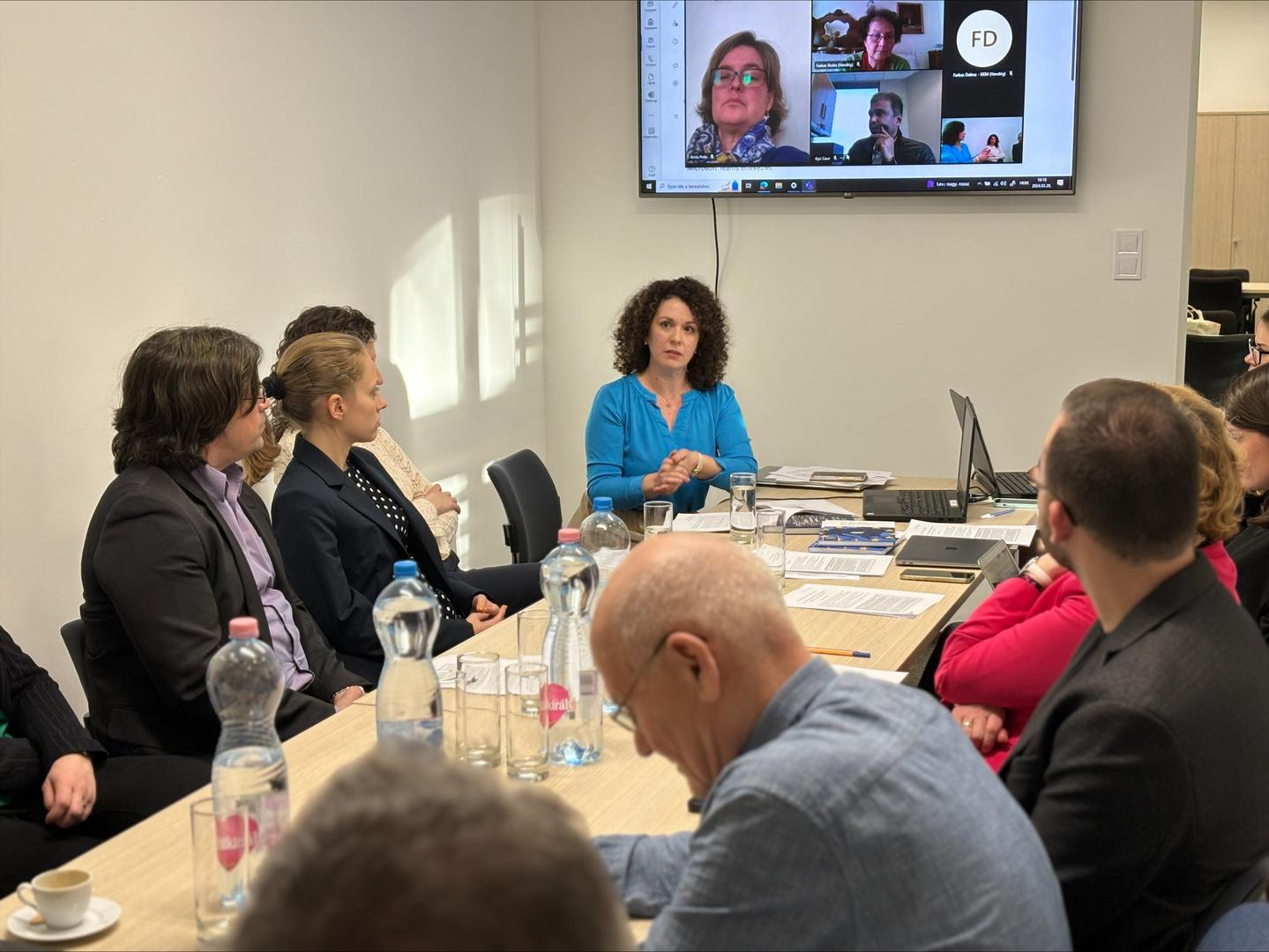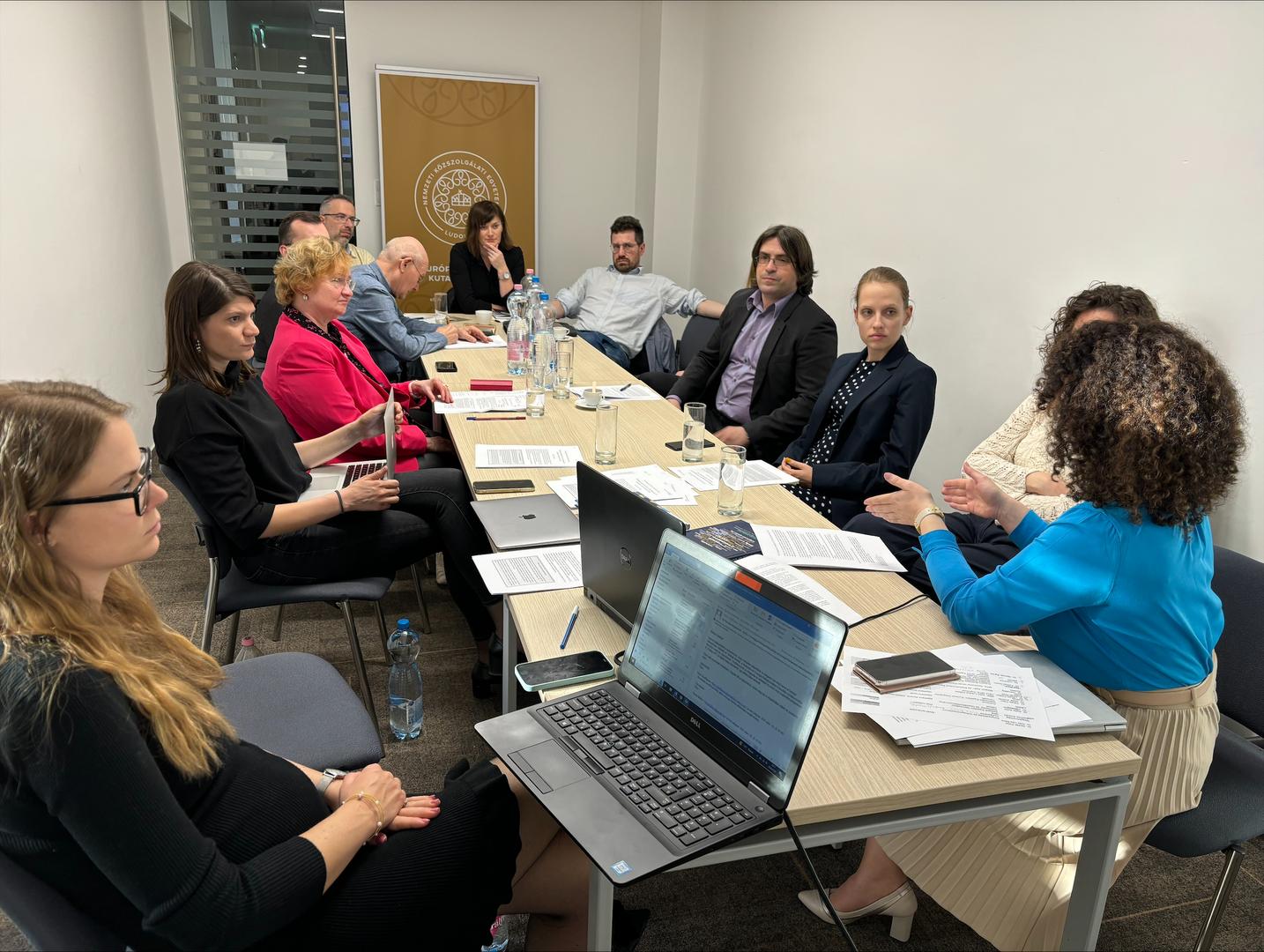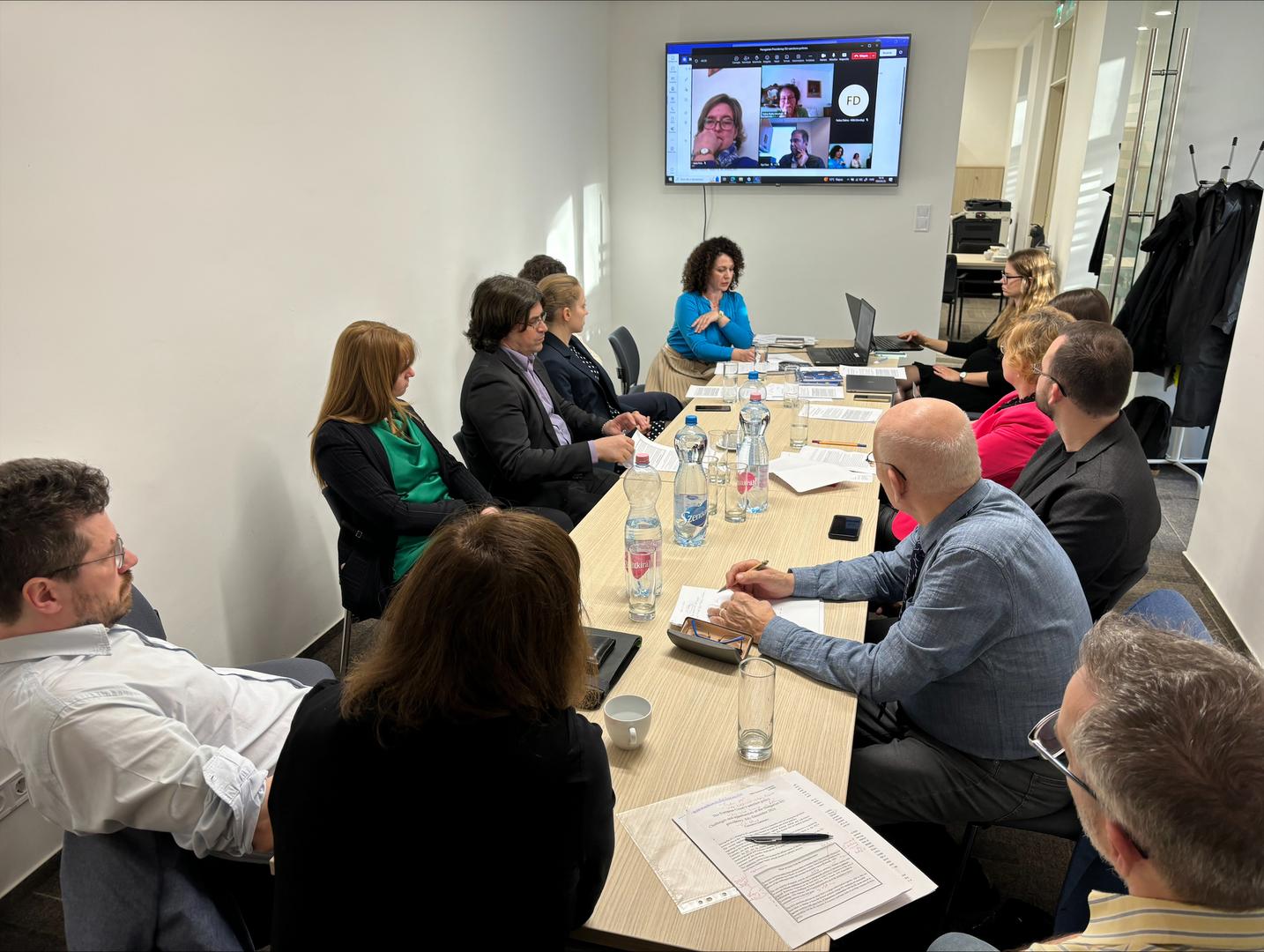On 20th March 2024, the Ludovika University of Public Service hosted the 2024 Hungarian EU Presidency Workshop Series on Sanctions Policy, organized by the Europe Strategy Research Institute.

The Europe Strategy Research Institute has been organizing a series of workshops from September 2023 onwards in preparation for the 2024 Hungarian EU Presidency. As such, the Institute's researchers prepare policy papers in their respective research areas. These present the achievements of the 2011 Hungarian Presidency in this particular policy field, opportunities and challenges of the field, and proposals to overcome challenges. The policy proposals are discussed with the Institute's staff and invited experts and expert contributors.
The last event was attended by Miklós Losoncz Ph.D., Head of the Doctoral School of Business and Economics of the BGE, Ágnes Bernek Ph.D., professor of the Department of Economics of BME-GTK, Beáta Farkas Ph.D., Professor of the University of Szeged, Anita Pelle Ph.D., Head of International Institute of Economics and Business of the University of Szeged, Tibor Tőkés Ph.D., Head of the Department of European Integration at the University of Debrecen, György András Deák Ph.D., Senior Research Fellow at the John Lukács Institute, Ajai Gaur Ph.D., Head of the Department of Management and World Economy at Rutgers Business School, Péter Glofák, PhD candidate at the Doctoral School of Earth Sciences at the University of Pécs, and András Csehes, PhD student at the Ludovika University of Publis Service. Dalma Farkas from the Sanctions Department of the Ministry of Foreign Affairs and Trade also participated. Attila Erdőháti-Kiss, PhD student at the Hungarian University of Agricultural and Life Sciences, and Dr. Nóra Kiss-Lilla, Adjunct Professor at George Mason University, provided written comments on the policy proposal.

Réka Zsuzsánna Máthé, Ph.D., presented the main findings of the policy paper, including the most important results of research on the goals of restrictive measures, as well as their effectiveness and efficiency. The policy paper highlighted the main geo-economic challenges facing EU sanctions policies. The EU is dependent on critical and strategic raw materials from China, which are crucial for the EU's economic security strategy. This dependency has arguably developed in proportion to its dependence on Russian energy resources. Restricting exports of these elements from China to the EU or substantially increasing prices would negatively impact the European automotive and defense industries, technological development, and, indirectly, competitiveness and productivity.

Rather than escalating existing tensions, a new political and social dialogue is needed between the G7, BRICS+, and the Global South. This year, the G20 Summit will be held in Brazil and the BRICS+ Summit in Russia, both during the Hungarian EU Presidency's tenure. The timeliness of these summits could serve as a platform for the Hungarian Presidency to initiate dialogue and mitigate tensions that seem to be on the rise.